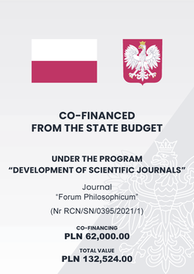- Home »
- Issues »
- 23/2 – Fall 2018 »
- Articles »
René Girard and the Epistemology of Revelation
Abstract
René Girard never worried about clarifying the epistemological frame- work of his theories. Yet it is a necessary task, if only to answer the questions of method inevitably posed by the mixture of scientificality and religious conviction that characterizes his approach. Girard’s use of the word “revelation” is paradig- matic from this regard. A philosophy of the event can provide an epistemological framework to unify the theological and anthropological meanings of this notion. On a phenomenological level, Divine Revelation is analogous to certain decisively meaningful happenings in our existence, or in history. The irruption of a radically new sense into a reality that does not contain it in any way is not an exclusive prerogative of religious experience. The schema of the meaningful event makes it possible to disclose the logic of the great Girardian narrative, whose key stages are revelations, in the sense of events bringing a new kind of meaning. The scenario of the emergence of culture described by Girard is event-driven, and the same logical schema underlies the Girardian interpretation of the Passion as an unveiling of human violence. In the same way Girard analyses conversion, in both a religious and a “novelistic” sense, as a spiritual event. Finally, his apocalyptic conception of history can be interpreted using this epistemological framework.
Cite this article
Perret, Bernard. “ René Girard and the Epistemology of Revelation.” Forum Philosophicum 23, no. 2 (2018): 189–200. doi: 10.35765/forphil.2018.2302.11.




